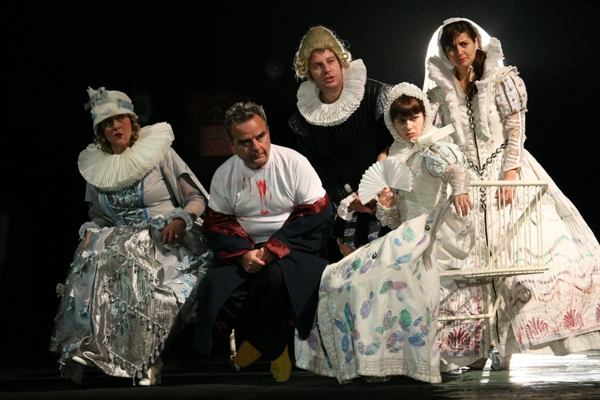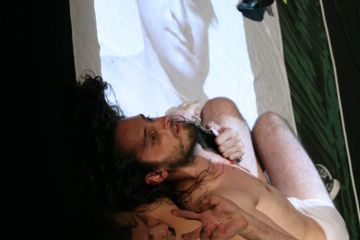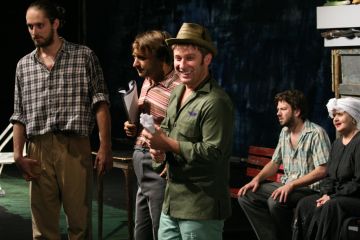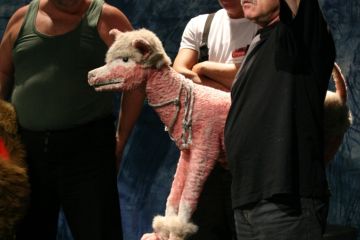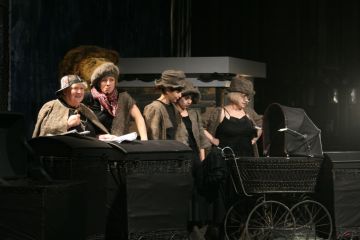Pyramus & Thisbe 4 you
Studio
Dorina Lazăr, Rodica Mandache, Oana Ştefănescu, Ada Simionică, Paula Niculiţă, Ana Maria Moldovan, Ionel Mihăilescu, Mircea Constantinescu, Marius Damian, Pavel Bartoş, Gabriel Pintilei, Mihai Smarandache, Victor Cociorbă, Nicu Coman, Cristian Dunăreanu, Dan Iosif, Ion Iosif, Constantin Neagu, Dumitru Neagu
set design
Cosmin Ardeleanu
Casa Gontz
Alexandru Dabija
(Dan Boicea, Adevărul)
What Dabija proposes is a performance-school for convention. Each scene becomes a study in shaking up the mechanisms of the assumptions of convention. Parody as a refined form of delight and mocking as art are more than stylistic resources with Dabija. They are the themes of play and playing for a director who makes theatre in order to laugh a lot and well, and to discover how laughter can become a form of exploration in theatre, how laughter proposes a study in theatrical sociology and openly intelligent entertainment. A Tarantino-like laughter that bubbles over in every scene.
(Mihaela Michailov, www.artactmagazine.ro)
The performance received the Awards for Best Direction of the Year 2009 (Alexandru Dabija) by the UNITER (Romanian Theatre Union).
In this new production from Bucharest’s Theatre Odeon, Alexandru Dabija, one of the most dynamic directors of the moment, multiplies the classic “theatre within the theatre” scene from A Midsummer Night’s Dream four times, a celebrated scene of the masters of theatre. Each version interprets the scene in a different style, offering a parody of several trends in contemporary Romanian theatre. In the first version, only women perform. The second speaks of the world of fanatical, experimental artists. The third is about a confrontation between a Hungarian actor and a bunch of bored Moldavians, while the fourth, for the first time ever, brings even the technicians onto the stage.
(Iulia Popovici)









